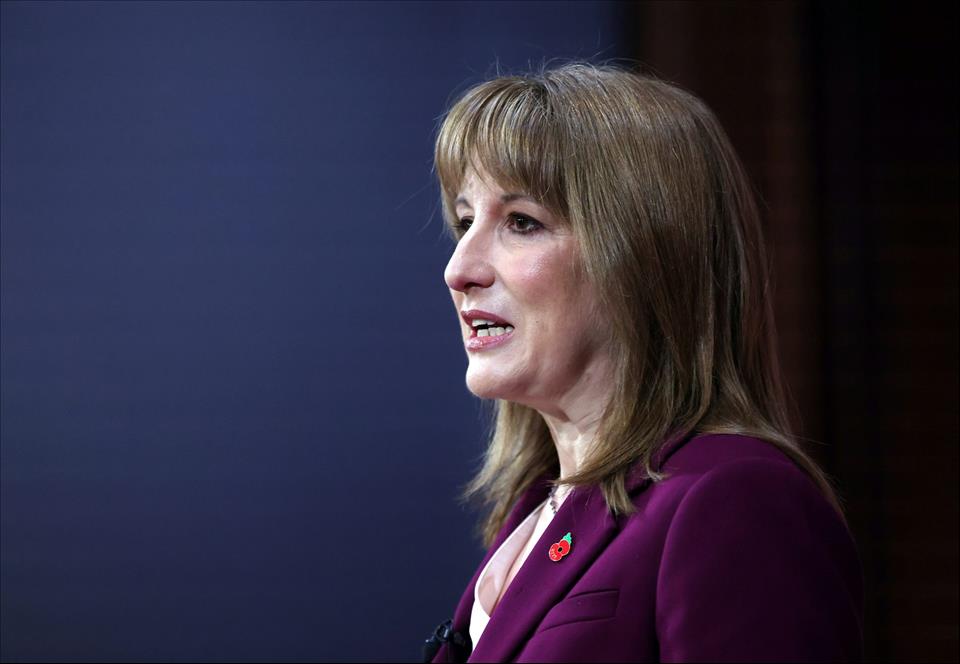
Tax Rises And Benefit Cuts Are On The Horizon As Reeves Prepares The UK For A Bad-News Budget
In a highly unusual move, the chancellor used the press conference to set out her priorities for balancing the books while growing the economy. Notably, she did not mention the pledge in Labour's manifesto not to raise taxes on working people or increase national insurance, VAT or income tax.
Instead, she said her focus was on lowering the burden of excessive government borrowing and debt, improving public services and tackling the cost of living.
Reeves gave particular importance to sticking with her“iron-clad” fiscal rules. These, she argued, were essential for showing she is being responsible with the nation's finances and preventing a further rise in the cost of borrowing (the interest the government pays on its debt).
At more than £100 billion per year, this already makes up 10% of all government spending. The government's spending watchdog, the Office for Budget Responsibility (OBR), projects the total to rise to £111 billion by the next financial year.
Read more: David Blunkett: the world has changed since Liz Truss's mini budget, so what is Labour still so scared of?
She also emphasised the importance of measures to boost UK productivity. Productivity forecasts are expected to be downgraded by the OBR, heaping yet more pressure on the chancellor's budget choices. Reeves questioned whether the forecast would accurately predict the future – but has accepted that she will have to work within the OBR's constraints in this year's budget.
The chancellor is right that there is a pressing need to boost productivity. But it is by no means certain that planned investment in things like housing, nuclear and a third runway at Heathrow will yield big gains, at least in the near term.
At the same time, she made it clear that to meet her budget target there will need to be cuts to public spending. Some cuts will come from more“efficiency” savings by government departments (that perennial option that all chancellors reach for).
But they will also come from tackling the UK's rapidly rising welfare budget, focusing on the large number of young people who are not in education, employment or training but depend on state benefits (so-called“Neets” ).
Any cuts to the welfare budget, as well as a failure to abolish the two-child benefit limit (although she is under pressure from colleagues to bite the bullet and axe it), will cause dismay within the parliamentary Labour party as well as many party activists.
Reeves is determined to bring down the UK's rapidly rising welfare bill. AndrewMcKenna/Shutterstock
As ever, the budget choices will be political as well as economic. Both the Conservatives and Reform UK will accuse Labour of breaking its manifesto promises. They will also claim Labour is undermining any chance of growth by raising taxes by a larger amount than any UK government has done in the last 50 years.
At the same time, it will become even more difficult for Labour to manage its large but fractious parliamentary majority. Earlier this year, backbenchers forced the government to restore the winter fuel payment for some pensioners and abandon plans to cut personal independence payments for disabled claimants.
Local government elections, as well as elections to the Scottish and Welsh parliaments, are looming next May. Reeves risks further alienating Labour's grassroot supporters and pushing them towards smaller left-wing parties such as the Greens. They already seem to be pulling ahead of Labour among younger voters.
The stakes could not be higher. A bad result could even lead to questions about the future of both the chancellor and the prime minister Keir Starmer.
Finally, the chancellor's goal to cut the cost of living for working people does not seem particularly ambitious. Her suggested approach involves cutting energy costs by investing more in electricity generation, and reducing the cost of food by changing the business rates system to help small businesses.
Even if effective, these changes will take some time to work through and may not be enough to convince voters that Labour is on their side – particularly if inflation is not brought under control.
Reeves' appeal to the public to back her long-term approach to sorting out the British economy may be admirable. But the political risks to her personally – and Labour more broadly – remain considerable.

Legal Disclaimer:
MENAFN provides the
information “as is” without warranty of any kind. We do not accept
any responsibility or liability for the accuracy, content, images,
videos, licenses, completeness, legality, or reliability of the information
contained in this article. If you have any complaints or copyright
issues related to this article, kindly contact the provider above.

















Comments
No comment